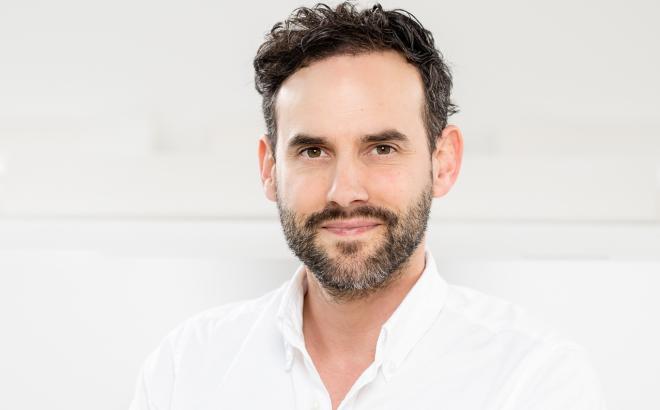Vera Gallistl, Sociologist
Research on age(ing) – still in its infancy
We spoke to Dr Vera Gallistl, research associate at the Competence Centre for Gerontology and Health Research at the Karl Landsteiner University for Health Sciences, about research on age and ageing, lifelong learning, and why she believes we need a societal shift in how we think about old age.
What attracts a young woman like you to research on age and ageing? Vera Gallistl gets this question a lot. For her, it is an indication that this stage of life, with all its diversity and relevance, has not yet become fully accepted in society: “Age and ageing involve a lot of things that are important throughout our entire lives. You could even say that growing old gracefully starts when you’re young. It is very important to be able to communicate this perspective. My research work contributes to this.” Vera Gallistl began working intensively on the topics of age and ageing, generations, and lifespan studies while she was still studying sociology. “One of the most important steps I took was to choose age(ing) research as a specialist focus for my sociology degree. I was planning to write my bachelor’s thesis on the topic of baby boomers and their housing preferences, and since there was no specialised seminar on the topic, I looked around for alternatives. This resulted not only in a collaboration with Prof. Franz Kolland at the University of Vienna, but also in several research projects and then later a doctoral thesis, as well setting me on my path to the Karl Landsteiner University.”
Ageing begins when you’re young
According to Gallistl, ageing and research on age are incorrectly portrayed as deficient, “The general perception of old age is still predominantly negative. We tend to assume that nothing exciting happens during this time, or that getting older is all about illness, dementia and limitations. For most people, it is a subject they want to address as late as possible, which also leads to a lack of experience with ageing and elderly people. Of course, the older generation is aware of this marginalisation and often experiences genuine exclusion. If the boundaries between different phases of life were loosened a little more and categorised less, new perspectives would be possible, Gallistl explains. “For example, instead of just worrying about the age of retirement, we could ask ourselves what younger generations need in the workplace to stay healthy longer and to be able to age well while working. How can this be achieved in society? This means, for example, that we need to discuss the relationship between work and leisure throughout our entire lifespan and not just in the so-called twilight years of old age.”
Instead of conducting research on people, Vera Gallistl can work with them to develop potential scenarios with real consequences. “Lifelong learning, curiosity and above all the need to remain part of society do not suddenly stop in old age. I think it’s important to always keep that in mind.”
Fine differences — enormous inequalities
Gallistl has always had a keen interest in social differences and inequalities, even while she was still studying. “How do we come to perceive people as different from each other? What are the subtle differences in the way we live, dress, eat, speak, spend our free time? I was interested in gendered and educational differences, but also in differences in age – how and when are people perceived as ‘old’ or ‘young’? What are the different roles and expectations associated with this?” She has the opportunity to address all these questions at the Competence Centre for Gerontology and Health Research. “I found the opportunities for interdisciplinary collaboration at Karl Landsteiner University particularly appealing. As a sociologist working in the field of gerontology, I was interested in exchanging ideas with colleagues from the fields of medicine, psychology and many other disciplines, because ageing is such a multifaceted process that needs to be viewed from different specialist perspectives. The Competence Centre in Krems offers the ideal setting for this.”
Making resources visible
While gerontological research is conducted in many places in Austria, there had not yet been a centre for gerontology. For Vera Gallistl, this was a unique and powerful motivation. “I have been involved in several projects since 2020, including one that focuses on the use of artificial intelligence in care – an area that has been little researched so far.” Age and digitalisation are two major trends whose connections and relations are generally overlooked and not yet well understood, she says. “There is still a lot to do here in terms of internet use and digital skills, but also care robotics and much more. I believe that it is important to dispel negative images of old age in broader societal discussions and, in connection with this, to make the achievements of older people in our society visible as an important resource.”
Link to the KL research information system KRIS





